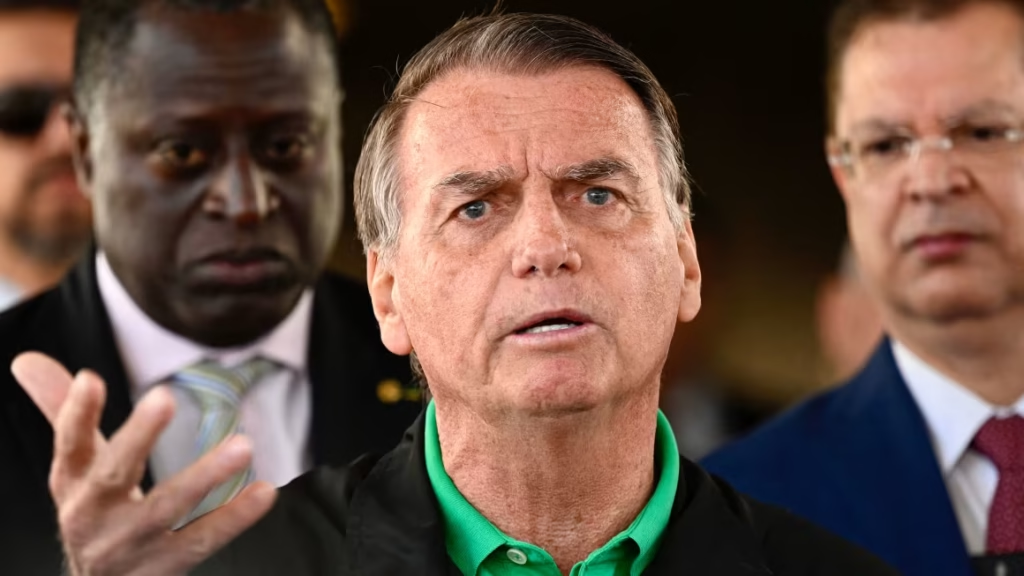Brazil has plunged into political and diplomatic turmoil following dramatic police raids on former President Jair Bolsonaro’s residence and political headquarters. The operation, part of a broader investigation into Bolsonaro’s alleged attempt to cling to power after losing the 2022 election, has ignited both national debate and international tension especially with the United States.
In a bold move, Brazilian authorities ordered Bolsonaro to wear an electronic ankle monitor and restricted his contact with foreign officials. The search also uncovered undeclared cash in U.S. dollars, intensifying public scrutiny.
While many Brazilians welcome the legal proceedings as a necessary step toward accountability, the situation has taken a sharp international turn. U.S. President Donald Trump, a long time ally of Bolsonaro, condemned the trial as a “witch hunt” and issued an ultimatum: end the prosecution or face severe economic consequences. Trump’s proposed 50% tariff on Brazilian exports, set to begin on August 1, sent shockwaves through diplomatic circles.
Brazilian President Luiz Inácio Lula da Silva wasted no time in responding. Calling Trump’s threat “unacceptable blackmail,” Lula defended Brazil’s judicial independence and reaffirmed that no foreign leader would dictate the nation’s legal process. His firm stance has sparked a rally of public support at home and signaled Brazil’s readiness to retaliate, potentially targeting American tech giants operating within the country.
Beyond politics, the economic stakes are high. The proposed tariffs could disrupt trade flows, impact major industries like agriculture and manufacturing, and further strain Brazil U.S. relations. Lula’s administration has hinted at invoking the Economic Reciprocity Law if Trump follows through on his threat.
This growing standoff underscores a larger global question: Can the rule of law prevail without becoming entangled in geopolitical power plays? As Brazil moves forward with its investigation, the world is watching closely.


